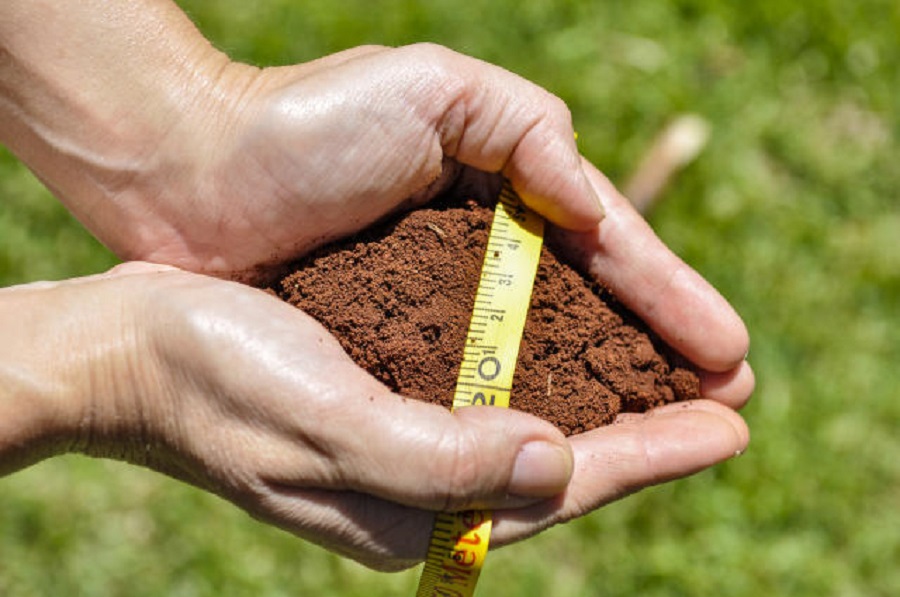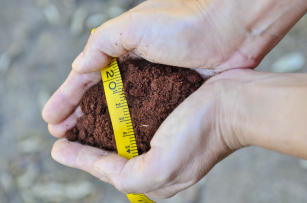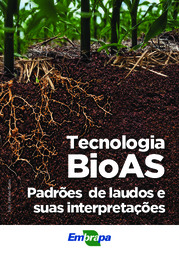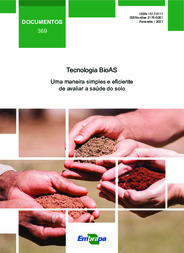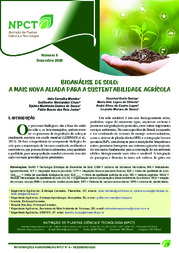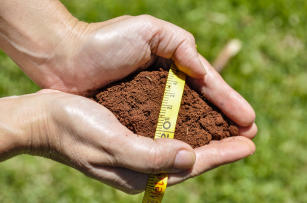Soil bioanalysis and health get online course in English and Spanish
Soil bioanalysis and health get online course in English and Spanish
New versions of the course on BioAS technology will be launched this month at international congress
The Soil Bioanalysis (BioAS) tecnology has just reached its fourth anniversary in July with new features for those who are interested in the technology, which adds bioindicators to traditional soil analyses and anticipates soil health problems that impact crop productivity. From now on, the free online course “Soil Health, BioAS Technology and Agricultural Sustainability”, which was originally in Brazilian Portuguese, will have translated versions in English and Spanish available on the virtual learning environment by the National School of Agricultural Management (Enagro).
The course's target audiences include farmers, extension agents, professionals in the agricultural sciences, students, cooperative union technicians, civil servants, and others with an interest in the technology. The course has a workload of 20 hours and aims to train participants with information on BioAS while also providing content related to agricultural systems and management that contributes to soil health. Enrolment for the first class in the three languages will be open from July 29 to August 4; there are unlimited places and the lessons can be taken from August 5 to 25. New classes will be open every month and Enagro's website lists the upcoming dates.
The new versions of the online course will be officially launched at the 9th World Congress on Conservation Agriculture, to be held in Cape Town, South Africa, July 22 - 25. Embrapa will be represented in the event by Ieda Mendes, a researcher from Embrapa Cerrados who led the research project that culminated in the development of BioAS. On the 23rd, she will contribute in the special session “Soil Health measurements – sense and nonsense” with the lecture “Large Scale Assessments of Soil Health in Brazil using Soil Enzymes”. “The lecture will be exactly on the day we celebrate the fourth anniversary of the launch of BioAS, which is quite symbolic and emblematic”, she observes. Check the full event schedule here.
Since the launch of the technology, the project team has presented 143 lectures about BioAS and soil health, both in person and online, not only in Portuguese but also in English, such as this one in the webinar series promoted by the 4 per 1000 Initiative last June.
The anniversary celebrations include the Brazilian Ministry of Integration and Rural Development's approval of a research project that will assess soil health in irrigation hubs in Goiás, a state in Central Brazil.
“Four years ago, we could not imagine the repercussion that BioAS would have, with all of these events. This shows how even at an early stage the technology has impacted the field and has increasingly drawn the interest of the scientific community, farmers, technicians and soil analysis laboratories, not only in Brazil but also in several countries”, the researcher celebrates.
For instance, in May BioAS was presented at the event celebrating 100 years of the establishment of the International Union of Soil Science Societies, in Florence, Italy. The technology was also featured in Field Days promoted at Embrapa Cerrados for participants of the Meeting of Agricultural Chief Scientists (MACS 20) and members of the Council of the Consultative Group on International Agricultural Research (CGIAR).
About BioAS
BioAS consists in the inclusion of two enzymes related to the soil's biological activities (beta-glucosidase, from the carbon cycle, and arylsulfatase, from the sulfur cycle) into routine soil analyses, allowing the anticipation of asymptomatic soil health problems before they cause productivity losses. At the moment, 33 commercial laboratories that have been trained by Embrapa and accredited in the BioAS Network are able to use the technology, and another 31 have expressed interest through an open call the corporation posted this year.
In addition to determining the action of the two soil enzymes, BioAS also involves calculating the Soil Quality Index (SQI), which integrates chemical and biological parameters based on three functions – nutrient cycling, storage and supply.
Accredited laboratories are linked to a web platform that interprets the enzymatic activity measurements from collected samples and thus calculates the SQI and the nutrient cycling, storage and supply functions. The data is stored in a large database, which by the end of this month should record almost 40,000 samples from different regions of Brazil.
Next steps
Ieda Mendes points out that, despite the achievements achieved in the first four years of the technology, the list of challenges for the future is extensive.
BioAS calibration for coffee, sugarcane, pasture and eucalyptus crops is due to be launched by the end of the present year. “Although the algorithms developed for annual crops work well for areas with coffee, sugarcane, pastures and eucalyptus, it will be very important to launch specific algorithms that have been adjusted for those crops”, states Fábio Bueno dos Reis Junior, another researcher from Embrapa Cerrados.
According to the Embrapa Agrobiology researcher Guilherme Chaer, BioAS' next steps will also involve calculating a Soil Carbon Trend Index (ITCS). “Based on data on the enzymatic activity and soil organic carbon obtained in the soil layer 0 to 10 cm deep, the ITCS will allow us to identify the carbon trend in a given soil (i.e. gain, loss or stability) and quantify the strength of such trend”, he explains.
At last, making the BioAS database available for public consultation is the researchers' biggest dream. Joint efforts with several institutions are being made to turn it into a reality as soon as possible. For Mendes, Brazil could be the first country to implement a web structure to host a National Soil Health Platform.
The platform will allow access to the percentage of samples coming from healthy, recovering, unhealthy and sick soils in production areas within the limits of Brazilian towns using BioAS technology. It will also feature geospatialized information on the health of Brazilian soils through interactive maps.
“By making soil health diagnosis at city level publicly available, the platform will allow the development of effective public policies for soil health and conservation at city, state and national levels to ensure productive crops in healthy soils”, Mendes projects.
Breno Lobato (MTb 9417-MG)
Embrapa Cerrados
Press inquiries
cerrados.imprensa@embrapa.br
Phone number: +55 61 3388-9945
Translation: Mariana Medeiros (13044/DF)
Embrapa's Superintendency of Communications
Further information on the topic
Citizen Attention Service (SAC)
www.embrapa.br/contact-us/sac/

